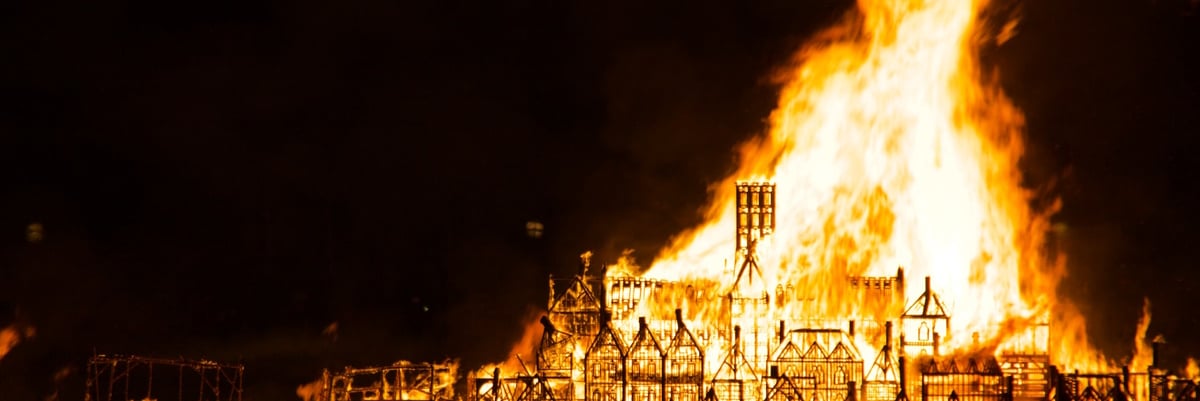Recent years in the West, particularly in English-speaking countries, have witnessed the rise of new political and social phenomena that have led hordes of activists and protesters to destroy historical monuments identified with slavery and colonialism or to marginalize politically incorrect intellectuals and artists.
Although these phenomena have become evident in recent waves, first with the election of Donald Trump in 2016 and then with the death of George Floyd in 2020, their root is much deeper. To name and frame it better, some conservative thinkers have called it "oicophobia," or the fear and aversion to one's home and roots.
Who, in Italy, has tried to summarize the debate on the topic for popular purposes is Spartaco Pupo, professor of History of Political Doctrines at the University of Calabria, who recently released with the publishing house Eclettica the essay Oicophobia. The repudiation of the nation.
Origins
Let's start at the beginning: oikophobia comes from the Greek oikos, "house", and phobia, "fear." Basically, in the same way that xenophobia is the fear of what is different, "other" than us, oikophobia is conversely the aversion or fear of what is familiar to us. However, there would be marked differences between the two phenomena: the first is that xenophobia is much better known and there are countless initiatives to counter it, whereas this is not the case with oikophobia. Moreover, while fear of the different can permeate all social classes, according to Pupo, self-hatred mainly affects more educated people.
Scholars generally credit the coining of the term to conservative British philosopher Roger Scruton, who titled precisely Oikophobia a scholarly article published in 1993 in "The Journal of Education" to denounce what he saw as a repudiation of national identity by certain intellectuals.
However, the term had already appeared in psychiatric circles more than a century earlier: the Italian psychiatrist Bernardo Salemi Pace, a professor at the University of Palermo and director of the local psychiatric hospital, devoted two works to it between 1881 and 1882 (Two singular cases of oikophobia or horror at one's home and On oikophobia) to refer to people who, because of trauma, did not want to return to the home they had grown up in. Between the late 1900s and the 2000s, the term was increasingly translated into the political sphere to refer to those who cultivated a hatred for their homeland or origins.
Debate in progress
The author goes on to illustrate all the major debates and discourses on the subject of Western self-hatred and guilt by almost every major intellectual who has dealt with it, in Europe and America.
It is pointed out that since the end of World War II, nationalism and love of nationhood have been increasingly viewed with hostility as they have been associated with the experiences of Nazi and fascist totalitarianisms. Later, the critique of the capitalist and colonialist West was carried forward by various Marxist currents, and in particular by the Frankfurt School. Third-worldist sentiment was influenced by postcolonial studies that have their progenitor in the Palestinian-American historian Edward Said. On the subject of nationalism, the opinion of George Orwell is given as an example, who in his essay On Nationalism drew a distinction between the latter and patriotism: if the nationalist is driven by the thirst for power, wanting to destroy or annex other nations to his own, the patriot is the one who acts to defend his land and home.
Although never directly quoted, the book seems to recall the theses of Israeli philosopher Yoram Hazony, who in his book The Virtue of Nationalism argued that Nazi Germany was actually not nationalist, but imperialist, in the sense that it was driven not by a desire to defend itself, but to invade and conquer Europe. An imperialism that Hazony also attributed to the old Soviet Union, and in recent years to the European Union.
Pupo also points out something that is often forgotten but should always be noted: while it is true that Western countries have practiced racist and slavery policies in the past, it is also true that those same countries are the ones that have defeated racism and slavery internally, without outside intervention. How many nations, in Asia and Africa, can say the same?
The Italian context
As for Italy, despite the fact that cancel culture is much less widespread here than abroad, Pupo points out that in our country patriotic sentiment has always been less felt than elsewhere, partly because of our past as a country divided into many small states. A quote from Oriana Fallaci is emblematic in this regard: in her book The Rage and the Pride, the Florentine journalist recounted how in 2001, when she lived in New York, workers proudly waved the American flag at their demonstrations.
A style, according to Fallaci, quite different from that of the Italian working class:
In marches and rallies I saw them waving so many red flags, to the Italian workers. Rivers, lakes of red flags. But of tricolor flags I always saw them wave very few. In fact none at all. Misguided or tyrannized by a left wing devoted to the Soviet Union, they always left the tricolor flags to their opponents.
Conclusions
Spartacus Pupo has the merit of illustrating in a not too complex way how oikophobia came into being and explaining why it is a potential threat to society, as well as highlighting a little-known concept even among those conservatives who would have valid reasons to take the issue seriously. And it does so in simple language that makes for a more enjoyable read.
With Hazony, Pupo seems to share a "theocentric" vision of the nation, where they would prefer a single state religion to exist and no room seems to exist for religious pluralism. Yet it is precisely the latter that should be considered a boast of the Italian Risorgimento, which liberated the Jewish and Waldensian minorities from the discrimination enacted for centuries by the preconciliar Church.
Giornalista pubblicista, ha scritto per le testate Mosaico, Cultweek and Il Giornale Off. Laureato in Beni culturali (Università degli Studi di Milano) e laureato magistrale in Giornalismo, cultura editoriale e comunicazione multimediale (Università di Parma).









Scrivi un commento